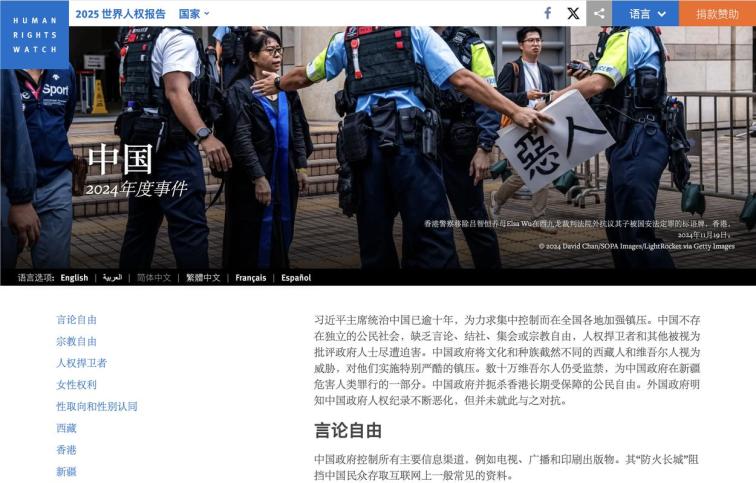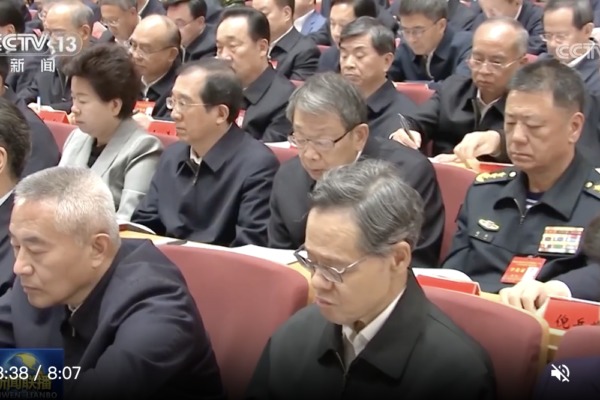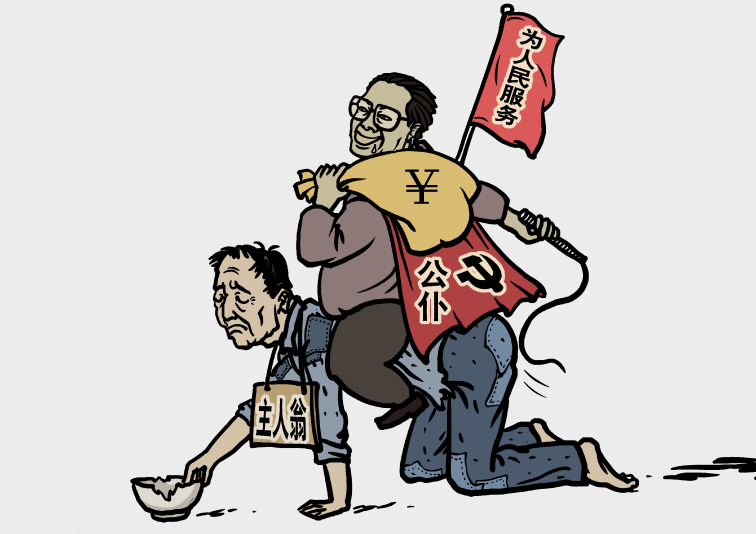U.S. President Donald Trump has threatened that if Mexico does not take further action to limit Central American immigrants from entering the United States, he will impose a 5% tariff on all imported goods sent to the U.S. (Photo by Hector Vivas/Getty Images).
[People News] A slave may shout, "slaves should die," while simultaneously kneeling down and bowing their head to the ground. Such scenes are commonly depicted in historical dramas. There are also storylines where the slave stubbornly refuses to kneel and confess. However, regardless of whether they kneel or not, their identity is inherently that of a slave. In the context of the ongoing China-U.S. tariff war, the Chinese Communist Party recently released a video titled "Not Kneeling!", signalling its refusal to engage in discussions about tariff reductions with the United States. Nevertheless, netizens argue that whether the CCP kneels or not, the fact that this statement originates from the CCP itself indicates that it fundamentally acknowledges its status as a slave.
The escalation of the tariff and trade war between China and the U.S. is perceived by many as part of President Trump's strategy to unite countries globally in an effort to contain the CCP. Recently, reports have emerged that the CCP has lowered tariffs on certain American goods, which some interpret as the CCP quietly "submitting" to the U.S. despite its tough rhetoric. However, the WeChat public account of the Chinese Ministry of Foreign Affairs released a bilingual promotional video titled "Not Kneeling!" on the 29th, asserting that it will not compromise or yield in response to U.S.-initiated tariff sanctions. Still, netizens believe that "only a slave would think of the phrase 'not kneeling.'"
The video has drawn mockery from the international community, with experts suggesting that it serves as an internal report for the Chinese Communist Party (CCP), while also hinting at self-incrimination.
As reported by The Epoch Times, the video released by the CCP's Ministry of Foreign Affairs, titled "Not Kneeling," opens with visuals of the "eye of the typhoon" and characterizes the United States as instigating a global tariff storm, completely sidestepping the issue of the CCP's unfair trade practices. The CCP further asserts that the U.S. '90-day reprieve' for other countries is specifically aimed at excluding China, yet it refrains from mentioning that the CCP is 'leading' the counteractions against the U.S. and escalating the tariff conflict. The video claims that subservience will only lead to increased pressure, proclaiming, 'China will not kneel!' It also includes footage from the Korean War and the return of Huawei's Chief Financial Officer Meng Wanzhou in 2021, depicting both events as symbols of the CCP's 'resistance.'
According to U.S. Fox News, the release of this video coincides with President Trump's 100th day in office, representing a direct response from the CCP to Trump's new trade policies.
This month, President Trump has levied a 145% tariff on Chinese imports while suspending tariffs for all other countries for 90 days, effectively isolating the CCP regime. In retaliation, the CCP has enacted a series of measures, imposing a 125% tariff on U.S. goods. Observers believe that Trump's strategy is designed to reward fair trade partners while exerting pressure on Beijing to implement reforms. Many analysts suggest that the CCP is at a disadvantage in the ongoing tariff war.
In response to the video released by the Ministry of Foreign Affairs of the Communist Party of China, comments on the heavily monitored mainland Weibo are predominantly filled with flattery, such as "well done." However, a few courageous netizens have voiced their opinions. They remarked: "The phrase 'not kneeling' doesn't quite fit here; it feels somewhat self-deprecating," and "Just because you claim you won't kneel doesn't mean you don't secretly want to; it also doesn't guarantee you'll stand—lying down is an option too. Moreover, even if you are standing, you could still 'bump the wall' (壁咚), haha."
On the overseas X platform, Chinese netizens have been mocking: "Only a servant would think of the phrase 'not kneeling'," "What grand narratives! They avoid discussing the widespread unemployment among the populace," "Chinese products still can't be sold," "If they want you to speak and you don't (secretly kneeling) but still insist you won't kneel, your skills as a foreign propaganda editor are only at a third-grade level, nothing higher," "The Chinese Communist government would rather let the people eat grass for three years than allow Xi Jinping to lose face," "From the lofty ambition of leading the human community to the tragic act of not kneeling, isn't the shift in roles a bit too drastic?" "A Marxist-Leninist rebel regime claims to represent China all day long; it's truly astonishing. Even more absurd is their claim of being connected to the 1945 Cairo Conference... It's essentially a permanent global joke."
Taiwanese senior political and economic commentator Wu Jialong (吳嘉隆) pointed out that this video is essentially the Communist Party's internal report, suggesting that the phrase 'not kneeling' carries an implication of self-incrimination. "They never said you should kneel; you came out to declare you won't kneel, which indirectly admits that you have already knelt."
Wu Jialong remarked that the leadership of the Chinese Communist Party (CCP) miscalculated their assessment of Trump, and combined with rising nationalist sentiments, this has led to an enforced tariff war with the United States. It seems that the CCP has come to realise this misjudgment. Initially, they thought Trump was a businessman who could be bought, negotiated with, and pressured, but they have now found that this is far from the truth. As a result, they are quietly making some adjustments, but it may be too late to rectify the situation. 'The current situation is dire; first, Xi Jinping doesn't even have the chance to kneel, and second, kneeling would be futile.' The real adversary for Trump is not Xi Jinping, but the CCP itself. This one-party authoritarian regime dictates the distribution of national interests, and without political reform, the United States cannot reintegrate China into the global economy. This is the crux of the issue.
Australian historian Li Yuanhua commented that the short video released by the CCP's Ministry of Foreign Affairs embodies a wolf warrior attitude, projecting a menacing image. More critically, this is because the CCP needs to rally the Chinese populace domestically, forcing them to endure hardships in order to resist the U.S. tariff war. However, the public is becoming increasingly difficult to deceive, with a growing number of individuals awakening to the reality.‘ China is fundamentally dependent on the United States. The CCP is now implementing so-called flexible measures to lower certain tariffs to address immediate concerns, but this will not be disclosed publicly; they still aim to project a strong anti-U.S. stance.'









News magazine bootstrap themes!
I like this themes, fast loading and look profesional
Thank you Carlos!
You're welcome!
Please support me with give positive rating!
Yes Sure!